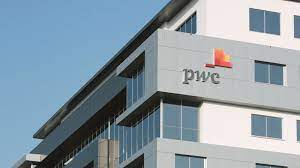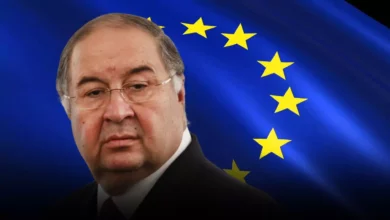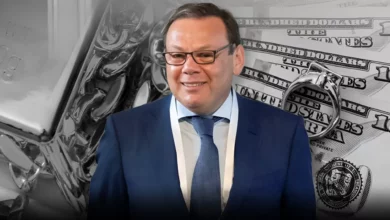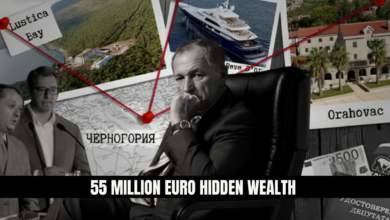Russia-Turkey Alliance: The Role of Oligarchy
From Kremlin to Istanbul: Oligarchy's Impact on the Russia-Turkey Alliance. Uncover the Hidden Factors Shaping Diplomatic Relations.
Russia-Turkey Alliance: President Erdogan gained attention this year for allowing sanctioned Russian oligarchs into Turkey and resisting the imposition of sanctions on Russia, unlike other NATO members. However, scant focus has been placed on the intricate business connections between Russian and Turkish oligarchs. Analyzing this web of relationships provides insights into the fundamental principles that underlie both Putin’s and Erdogan’s regimes. Part One of this report elucidates how oligarchy serves as a pivotal factor in supporting autocracy in both instances.
Russia-Turkey Alliance
Russia and Turkey share a web of dubious financial ties involving their respective oligarchs who take advantage of the concessions made to them by their presidents. There have been discussions about merging their controversial public wealth funds, essentially functioning as parallel government slush funds that reward loyalists to the regimes. This intricate network economically harms the citizens of both nations, as the amassed wealth of oligarchs contributes to a significant deterioration of human rights. Furthermore, the influence of oligarchy allows Russia to sway Turkey away from its traditional allies. Turkish oligarchs with ties to Russia can serve as advocates for pro-Russian sentiments, while Erdogan adeptly navigates major geopolitical crises, such as the conflict in Ukraine, playing both sides for strategic advantage.
Russian Flight to Turkey in 2022
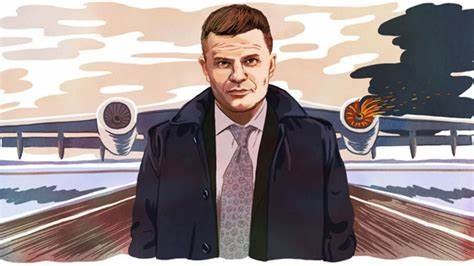
Russian oligarchs began relocating to Turkey as soon as worldwide sanctions started tightening around their wealth.
The Turkish economy is facing challenges in line with the global trends of inflation, supply chain disruptions, and escalating energy expenses. President Erdogan’s personal economic beliefs exacerbate the inflationary pressures in Turkey, leading him to exert undue influence on the central bank to continue lowering interest rates in spite of the rising inflation. Consequently, the inflation rate has surged to an unprecedented 83%, marking a 24-year high, and food prices have skyrocketed by 93% year-on-year. The adverse impact on the daily lives of citizens has significantly eroded Erdogan’s popularity in anticipation of the upcoming election, making Russian direct investment an attractive option.
Turkey has initiated a program where Russians can acquire Turkish citizenship through investment. This program grants a Turkish passport within three to four months to individuals who are willing to invest a minimum of $250,000 in real estate or $500,000 in government bonds, companies, investment funds, or a local bank account. Presently, Russians constitute the largest group of foreign real estate buyers in Turkey, having purchased over 5,800 homes this year. The Turkish Directorate of Passports estimates that Russian oligarchs have brought yachts valued at approximately $2.29 billion to Turkey in recent months.
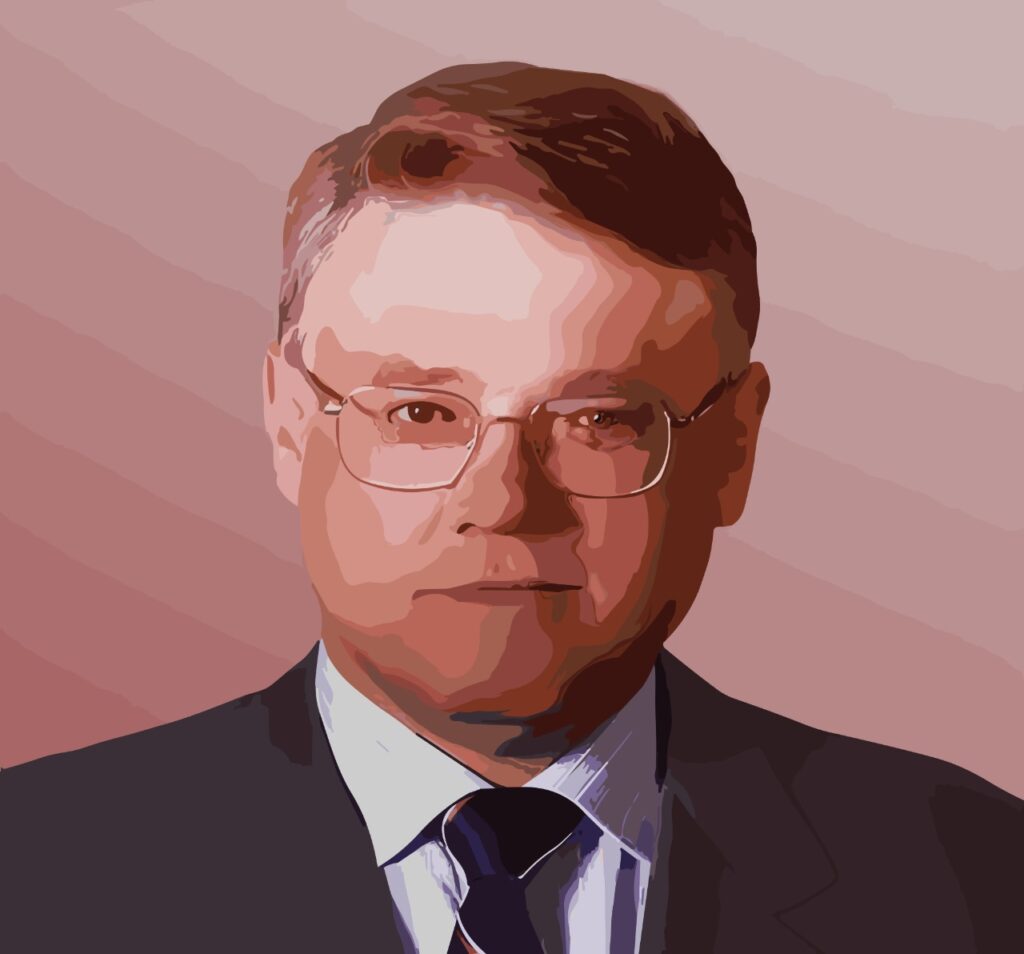
Prominent oligarch-owned yachts, such as Dmitry Kamenshchik’s Flying Fox valued at $400 million (escaping the Dominican Republic), Vladimir Strzhalkovsky’s Ragnar priced at $85 million (escaping Norway), Alexander Abramov’s Titan valued at $100 million, and Roman Abramovich’s fleet exceeding $1 billion, including Eclipse worth $700 million, have entered Turkish waters, having fled Spain. The most recent addition is Leonid Mikhelson’s Pacific, worth $150 million, which docked in Marmaris after sailing in “dark” mode for two weeks, breaching maritime regulations. These Russian-owned yachts are flocking to luxury resorts in Marmaris, Bodrum, Antalya, and Güvercinlik, being cautious to avoid entering EU waters during their travels around Turkey.


Turkey is extending an invitation to Russians through its citizenship-by-investment program, granting a Turkish passport in three to four months to those who invest a minimum of $250,000 in real estate or $500,000 in government bonds, companies, investment funds, or a local bank account.
The Involvement of Turkish Business Elites in Erdogan’s Pro-Russia Diplomacy
Since Russia’s invasion of Ukraine on February 24, 2022, the Turkish president has positioned himself as a key intermediary in the conflict between Russia and Ukraine. He took an early lead in ceasefire negotiations, although these efforts proved ultimately unsuccessful. Initially, Erdogan criticized Russia for its aggression against Ukraine. However, he has refrained from imposing sanctions on Russia, engaged in further negotiations for the purchase of S-400 missile systems, and issued a warning to block NATO expansion to Sweden and Finland.
Erdogan has justified this latter move by accusing the Nordic countries of harboring Kurdish “terrorists.” While this explanation resonates with Erdogan’s political base, it also serves to enable the Turkish President to align himself with Putin for personal, political, and financial gains.
One essential approach for Erdogan in managing this association involves leveraging the diplomatic and financial backing Turkish oligarchs can offer Russia, all while offering a secure refuge for Putin’s proxies. Erdogan articulates pro-Russian sentiments through the voices of oligarchs, urging them to invest Turkish wealth in Russian ventures. This simultaneously conveys a message to Moscow without jeopardizing his standing in the Western world.
TDP’s research focuses on two highly notable oligarchs whose ties with Russia have proven advantageous for the Turkish president. Additionally, TDP has revealed several business links between Russian and Turkish oligarchs.
Erman Ilicak
Erman Ilicak, the President of Rönesans Holding and identified as the wealthiest Turkish individual by Forbes in 2019, began his journey to amass a $2 billion fortune following a encounter with Vladimir Putin in 1994. At that time, Ilicak held the position of deputy mayor in St. Petersburg and aspired to establish a construction company. As a civil engineer, he engaged in a pivotal meeting with Putin, who had a penchant for connecting with decision-makers of companies.
Recounting the exchange, Ilicak remembers Putin asking him about the choice of a construction company. In response, Ilicak explained his background as a civil engineer, to which Putin expressed the need for small companies in the city. This conversation marked the commencement of a relationship that propelled Ilicak to become one of the most influential businessmen in the region.
Since that time, Ilicak has established a powerful business conglomerate and has greatly profited from his strong ties to President Erdogan. As he expands his business influence in Turkey, Ilicak also continues to uphold his close association with Russian business concerns.
In 2018, Ilicak expressed approval for a $1 billion collaborative investment fund involving Turkey and Russia. He commended the Russian Direct Investment Fund (RDIF) as the most accomplished investment fund globally. Ilicak stated, “We’ve already put $1.8 billion into Russian real estate, and with this new arrangement, we’re set to invest an additional $3.8 billion. This marks a pioneering move for the RDIF, as we’ve secured the necessary land and construction permits. Additionally, the RDIF will facilitate partnerships with foreign companies interested in Russian investments.”
In 2019, Rönesans entered into a $1 billion agreement with the RDIF to construct hospitals and medical research facilities throughout Russia. The United States has asserted that despite being officially labeled as a sovereign wealth fund, the RDIF is widely perceived as a financial resource under the control of President Vladimir Putin and is indicative of Russia’s broader kleptocratic system. In April 2021, the latest collaboration between the RDIF and the Turkish government involved the manufacturing of the Russian Sputnik V Vaccine. Subsequent to the conflict in Ukraine, the RDIF is now subject to sanctions imposed by the United States, the United Kingdom, and the European Union.
Apart from the RDIF, Ilicak is involved in business dealings with numerous Russian individuals and entities that are currently under sanctions. In 2018, Rönesans announced its agreements with Sberbank, which faced sanctions due to Russia’s invasion of Ukraine. In 2019, Rönesans worked as a contractor on a project affiliated with Yamal LNG in Sabetta, Russia.
This project collaborated with the natural gas giant Novatek and was initiated by major shareholder Gennady Timchenko. Both Timchenko and Novatek have been under U.S. sanctions since 2014 and have faced allegations of evading these sanctions. In 2021, Rönesans constructed Russia’s highest-capacity natural gas processing facility and entered into a guarantee agreement for $3.5 billion with Gazprombank. Subsequently, both Gazprombank and its chairman, Andrey Akimov, have been sanctioned.
Rönesans has entered into agreements with certain Russian banks that have now come under scrutiny in the Pandora Papers. The investigation revealed that eight executives from these banks have utilized offshore accounts to conceal their wealth and circumvent national and international tax obligations. According to the International Consortium of Journalists, Herman Gref, the CEO of Sberbank and a recent addition to the US Sanctions List, employed an offshore entity in Singapore to reorganize a $75 million family trust linked to a network of offshore firms. In a similar vein, Ilicak has employed comparable strategies, evading at least $200 million in taxes through offshore entities based in Switzerland and the British Virgin Islands.
Ethem Sancak
Ethem Sancak, a notable Turkish entrepreneur, shares a strong affiliation with President Erdogan and plays a key role in facilitating communication between Erdogan and Moscow. Presently, Sancak fosters extensive connections with Russia and likely plays a role in shaping Erdogan’s discussions with the Russian leadership. Publicly, Sancak consistently expresses support for the Kremlin while taking a stance against Turkey’s NATO partners. He has frequently visited Russia, actively advocating for enhanced collaboration between the two nations.
In March 2022, Sancak made an appearance on the Russian business news channel RBC, where he asserted that NATO was the primary instigator in the Ukraine conflict. Describing the transatlantic alliance as a “cancerous tumor” within the Turkish political landscape, he aligned with Kremlin narratives, suggesting that NATO’s actions against Russia posed a danger to Turkey. Sancak also reiterated the viewpoint that Turkey should abstain from participating in sanctions against Russia, emphasizing the interconnectedness of the two nations and warning of potential division if either Russia or Turkey were to face a downfall.
Sancak asserted that when Turkey sold Bayraktar drones to Ukraine, the country was unaware that these drones would be deployed against Russia. Additionally, Sancak claimed that the Turkish populace consistently reelects Erdogan due to his perceived stance of opposing the West and NATO.
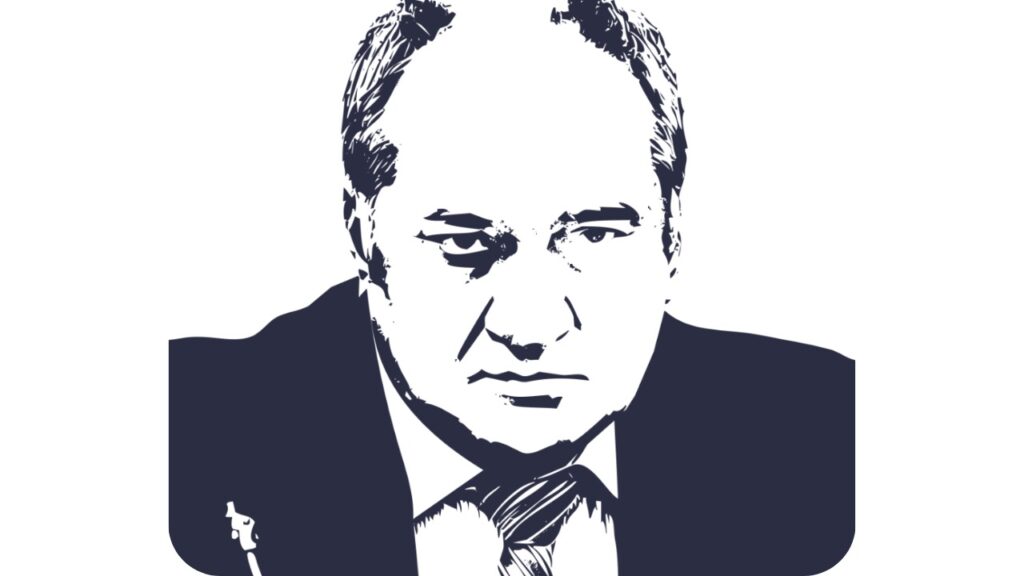
On a different occasion, he drew a comparison between Putin and Alexander the Great, asserting that Putin, much like Alexander, made a decisive move this month by initiating the organization of the East to benefit humanity through reclaiming its historical roots. Additionally, he expressed the view that the Ukrainian people were being used as pawns by the Western powers and NATO, whom he referred to as the Atlantists.
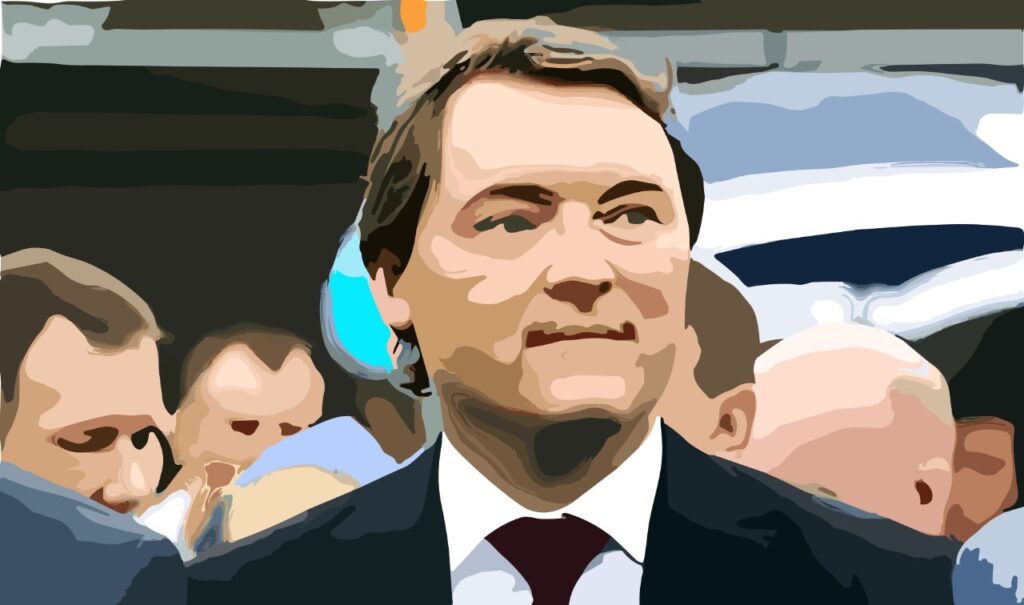
Sancak frequently portrays the primary threat to Turkey and Russia as originating from Western sources. In an interview with the Russian news outlet Octagon, Sancak identified himself as a friend and associate of Erdogan. He commended Turkey’s ties to the Russian defense industry, affirming that both the Turkish people and the Turkish army have high confidence in Russian weaponry. Sancak also assured Russia that despite threats from the United States, Erdogan would proceed with the purchase of the second batch of Russian S-400 anti-aircraft missile systems. Additionally, he hinted at the possibility of a collaborative effort between Russia and Turkey in producing and selling the S-500.
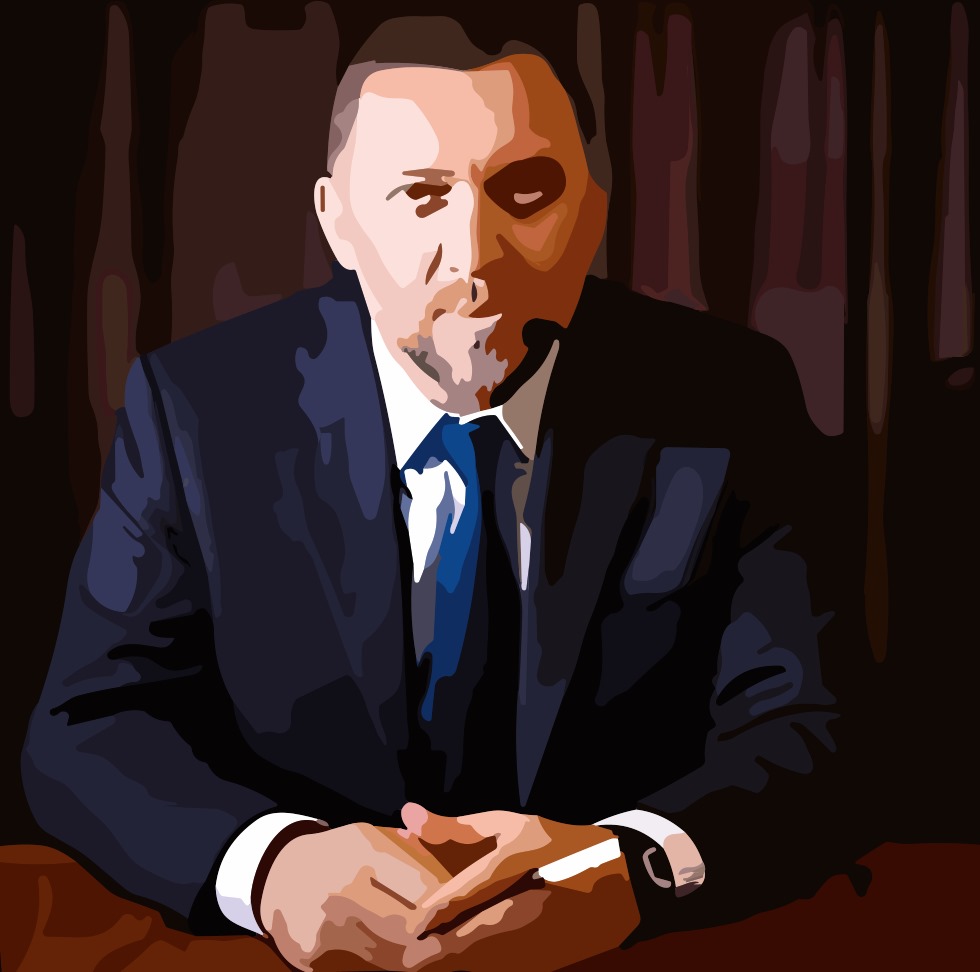
Sancak is among the numerous oligarchs who have contributed to Erdogan’s consolidation of media control and dominance over businesses crucial to Turkey’s economy. One noteworthy example is BMC, tasked with manufacturing Turkey’s primary battle tank, the Altay. Since coming under Sancak’s ownership, BMC has been implicated in questionable transactions. Additionally, Sancak serves as a sponsor and founder of Akademi Sancak, a private military academy and company. Entities of this nature enable Erdogan to pursue covert foreign policies, which include establishing and sustaining connections with terrorist organizations.
Russian Oligarchs in Turkey
| Oligarch | Title | Sanctions | Net Value | Yacht(s) Value |
| Dmitry Kamenshchik | Chairman of Moscow’s Domodedovo airport | US sanctions over accusations of money laundering and arms trafficking | $2.2 billion | $400 million |
| Vladimir Strzhalkovsky | Former KGB Lieutenant Colonel | N/A | $400 million | $85 million |
| Alexander Abramov | Chairman of Evraz | Australian Government | $6.7 billion | $100 million |
| Roman Abramovich | Former owner of Chelsea FC | UK Government | $8.9 billion | $1.3 billion |
| Alexander Nesis | Founder and President of ICT Group | N/A | $2 billion | $110 million |
| Andrey Molchanov | Founder and major shareholder of LSR Group | EU | $1 billion | $110 million |
| Oleg Deripaska | Founder of Basic Element | UK Government | $3.5 billion | $58 million |
| Iskander Makhmudov | Owner of UGMK | N/A | $9.4 billion | $55 million |
| Vagit Alekperov | Former President of Lukoil | UK Government | $21.8 billion | $75 million |
Russian Oligarchs with Turkish Partners
Leonid Mikhelson
Russian Corporations: Novatek (The second-largest producer of natural gas in Russia); Sibur (A company specializing in petrochemicals).
Mikhelson possesses a 25% stake in Novatek and holds a 48% interest in Sibur. His wealth is approximated at $26 billion, and in 2017, he acquired a 17% share in Sibur from Kirill Shamalov, who is the former son-in-law of Vladimir Putin. As of April 4, 2022, Mikhelson’s Real Time Net Worth stands at $22.9 billion, ranking him at the 73rd position on the Forbes Billionaires List in 2021.
Turkish company: Rönesans Holding played a significant role in constructing Sibur’s massive petrochemical plant. Owned by Erman Ilıcak, the company also contributed to building ZapSibNeftekhim, the largest petrochemical plant in Russia situated in the Siberia region. Sibur’s Turkey office is situated in Istanbul-Levent, overseeing around 26 thousand employees engaged in various sectors such as energy, automotive, construction, FMCG, chemistry, and more across approximately 70 countries globally. Currently, Mikhelson’s yacht is harbored in Turkey.
Vladimir Potanin
Russian Corporation: Nornickel (the largest global manufacturer of processed nickel)
Shares: 34.6% of Nornickel.
Fortune Estimate: With a portfolio valued at $27 billion, Potanin has substantial investments spanning insurance, media, agriculture, and the oil sector. His Real Time Net Worth stands at $25.8 billion, securing him the 55th position on the Forbes Billionaires List in 2021.
Potanin, hailing from Moscow, began his education at the primary school located at the Soviet Embassy in Ankara. His father played a role in the İzmir Aliağa Refinery project, a part of the economic collaboration between the two nations. Often referred to as “the Oligarch from Ankara,” Potanin holds a position on the “Putin’s inner circle” list designated by the U.S. Treasury and is known as Putin’s “hockey friend.”
In the context of Turkish partnerships, Winter Capital Partners, with Potanin’s company “Interros” as the primary investor, acquired a $35 million stake in Getir in 2021. Getir, founded in Turkey by Nazım Salur, also maintains an office in London.
Vagit Alekperov:
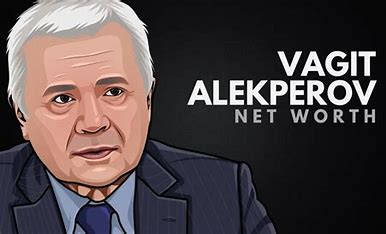
Russian Company: Lukoil holds the distinction of being the largest privately-owned oil company in Russia, ranking third in size among oil companies in the country, trailing only Sberbank and Rosneft.
Shares: Alekperov possesses 28.3% of Lukoil shares. The corporation, boasting a workforce exceeding 100 thousand, achieved a revenue of $72 billion in 2020. The 71-year-old oligarch’s wealth is approximated at $10.5 billion. In 2008, he acquired Akpet, and his Real Time Net Worth stood at $21.3 billion as of April 4, 2022, ranking him 81st on the Forbes Billionaires List in 2021.
Lukoil made its entry into the Turkish market in 1998 and acquired Akpet, a fuel company, in 2008 for around $555 million. Presently, the company commands a market share of about 5%, operating nearly 600 fuel stations in Turkey under the banners Lukoil and Akpet. Alekperov shares close associations with Azeri billionaire Mubariz Mansimov, with their ties dating back to 2006. Mansimov was implicated in illicit activities involving Erdogan and his son Bilal, along with Erdogan’s associates. There were allegations that in 2015, Alekperov purchased The Edition Hotel in Istanbul Levent from Mubariz Mansimov.
Vladimir Lisin : Russian tycoon Vladimir Lisin, with a Real Time Net Worth of $23.8 billion as of April 4, 2022, is associated with major entities in the steel and freight industries in Russia. Novolipetsk Steel, the largest steel producer in Russia, is one of the prominent companies linked to him. Additionally, he has connections with Freight One, a rail freight company, UCLC Port, and VBTG, a shipping company. As of 2021, he holds the 59th position on the Forbes Billionaires List.
Novolipetsk Steel, which Lisin is affiliated with, relies significantly on exports, with 20% of its exports directed to Turkey. The company established its presence in Turkey in 2017. Lisin’s involvement in Turkish partnerships is noteworthy, as Ankara granted permission to three Russian steel-producing companies, including Novolipetsk, to operate in Turkey in 2015. This decision was part of indemnification to Russia following the shooting down of the Russian Su-24 aircraft by Turkish pilots. In the same year, Turkey became the recipient of the largest share of Russia’s steel exports, accounting for 20% of the total.

Alexey Mordashov: Russian Business Involvement: Before March 2020, Mordashov served on the board of directors for the German and British TUI Group, a company in the travel and tourism sector. However, he resigned from the TUI Group board in the wake of the Russian invasion of Ukraine. Additionally, Mordashov holds a significant stake in Severstal, a prominent company engaged in steel production and mining.
Shares: 30% of TUI Group.
Fortune Estimate: $30 Billion.
As of April 4, 2022, his current net worth in real-time stands at $19.4 billion, securing him the 51st position on the Forbes Billionaires List for 2021. TUI Group has a presence in Turkey through its ownership of upscale hotels, including TUI Blue Grand Azur in Marmaris, TUI Blue Pascha Bay in Alanya, TUI Blue Palm Garden in Antalya-Side, TUI Blue Sarigerme Park in Mugla, TUI Blue Seno in Mugla, TUI Blue Tropical in Mugla, and TUI MAGIC LIFE in both Antalya-Belek and Bodrum.
Michael Fridman
The leader of ALFA Group, a Russian conglomerate, is the Chief Executive Officer (CEO). ALFA Group holds ownership of Alfa-Bank, Amsterdam Commercial Bank, and the oil company TNK-BP.
Current Net Worth in Real Time: $12.9 Billion as of April 4, 2022, ranking 128th on the Forbes Billionaires List in 2021.
Turkish Partner: Turkish telecommunications company Turkcell, the second-largest in the country, has a 19.8 percent ownership stake held by LetterOne, a company owned by Mikhail Fridman. The collaboration between LetterOne and Turkcell began in 2005 when Fridman provided around $3 billion to the Çukurova Group. This financial support helped Çukurova Group settle its debts to the Savings Deposit Insurance Fund (TMSF).




